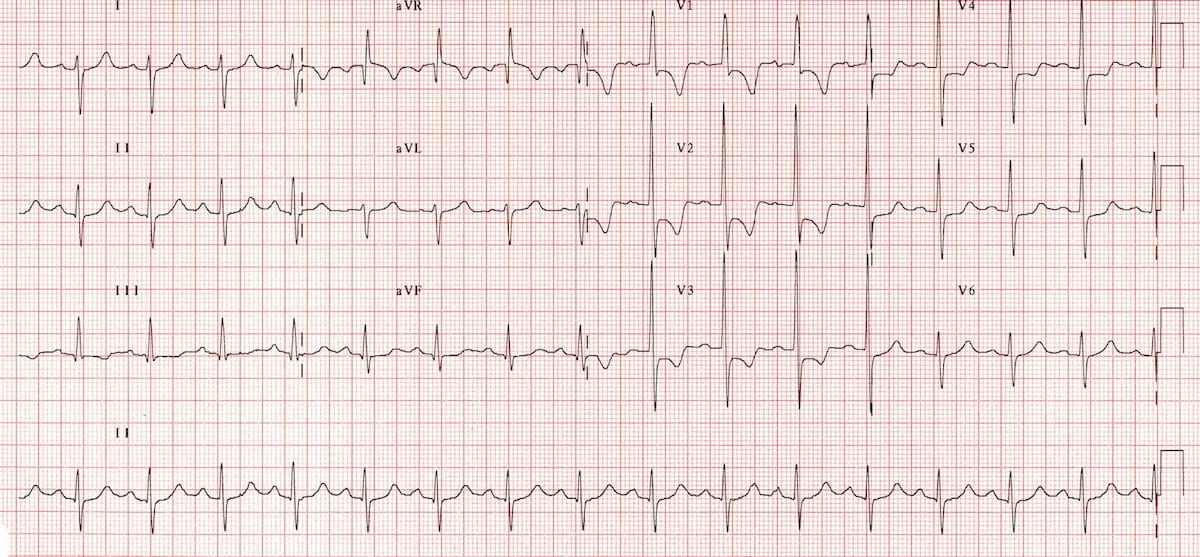Strain Pattern Ecg
Strain Pattern Ecg - Web the strain pattern in the 12‐lead ecg, defined as st‐segment depression and t‐wave inversion, represents ventricular repolarization abnormalities.1 the mechanism underlying ecg strain is unclear, although it has been proposed as subendocardial ischemia.2, 3 ecg strain is associated with concentric left ventricular (lv) hypertrophy. The same data quoted specificity ranging from 89.8% to 100%. The utility of the ecg relates to its being relatively inexpensive and widely available. Typical lv strain pattern was presented on ecgs of 101 patients (23%). We investigated the mechanisms and outcomes associated with ecg strain. Web lvh with strain pattern can sometimes be seen in long standing severe aortic regurgitation, usually with associated left ventricular hypertrophy and systolic dysfunction. Very often , the entity is misdiagnosed. This ecg is from a man with left ventricular hypertrophy. This pattern has been classically associated with systolic anterior motion (sam) of the mitral valve and dynamic left ventricular outflow tract (lvot) obstruction. Web ecg strain pattern was associated with poorer lv systolic function and abnormal lv geometry, particularly eccentric lvh. No relationship was found with lv diastolic function. The same data quoted specificity ranging from 89.8% to 100%. St depression and t wave inversion in leads corresponding to the right ventricle: The utility of the ecg relates to its being relatively inexpensive and widely available. Very often , the entity is misdiagnosed. Web the most commonly observed pattern is asymmetrical thickening of the anterior interventricular septum (= asymmetrical septal hypertrophy ). Web the strain pattern in the 12‐lead ecg, defined as st‐segment depression and t‐wave inversion, represents ventricular repolarization abnormalities.1 the mechanism underlying ecg strain is unclear, although it has been proposed as subendocardial ischemia.2, 3 ecg strain is associated with concentric left ventricular (lv) hypertrophy. Huge precordial r and s waves that overlap with the adjacent leads (sv2 + rv6 >> 35 mm). Typical lv strain pattern was presented on ecgs of 101 patients (23%). Web left ventricular hypertrophy with strain pattern (example 3) | learn the heart. Web left ventricular hypertrophy (lvh): Web the strain pattern in the 12‐lead ecg, defined as st‐segment depression and t‐wave inversion, represents ventricular repolarization abnormalities.1 the mechanism underlying ecg strain is unclear, although it has been proposed as subendocardial ischemia.2, 3 ecg strain is associated with concentric left ventricular (lv) hypertrophy. Recently, ecg strain pattern has been shown to be associated. We investigated the mechanisms and outcomes associated with ecg strain. This ecg is from a man with left ventricular hypertrophy. Web ecg left ventricular hypertrophy with strain is associated with an adverse prognosis in aortic stenosis. The utility of the ecg relates to its being relatively inexpensive and widely available. 2,6 ecg strain has been. Web ecg left ventricular hypertrophy with strain is associated with an adverse prognosis in aortic stenosis. St depression and t wave inversion in leads corresponding to the right ventricle: Typical lv strain pattern was presented on ecgs of 101 patients (23%). Huge precordial r and s waves that overlap with the adjacent leads (sv2 + rv6 >> 35 mm). Web. Web the electrocardiogram (ecg) is a useful but imperfect tool for detecting lvh. Web baseline characteristics of patients with and without ecg strain. Web this ecg* demonstrates a strain pattern isolated to v5 and v6. Huge precordial r and s waves that overlap with the adjacent leads (sv2 + rv6 >> 35 mm). Web this multiethnic study of adults without. Web left ventricular hypertrophy with strain pattern ecg (example 1) | learn the heart. Web ecg left ventricular hypertrophy with strain is associated with an adverse prognosis in aortic stenosis. 2,6 ecg strain has been. Typical lv strain pattern was presented on ecgs of 101 patients (23%). Web there will be discordant st segments and t waves, which is called. This ecg is from a man with left ventricular hypertrophy. Web lvh with strain pattern can sometimes be seen in long standing severe aortic regurgitation, usually with associated left ventricular hypertrophy and systolic dysfunction. This pattern has been classically associated with systolic anterior motion (sam) of the mitral valve and dynamic left ventricular outflow tract (lvot) obstruction. The sensitivity of. Web the strain pattern in the 12‐lead ecg, defined as st‐segment depression and t‐wave inversion, represents ventricular repolarization abnormalities.1 the mechanism underlying ecg strain is unclear, although it has been proposed as subendocardial ischemia.2, 3 ecg strain is associated with concentric left ventricular (lv) hypertrophy. Web left ventricular hypertrophy with strain pattern ecg (example 1) | learn the heart. Typical. Web baseline characteristics of patients with and without ecg strain. Web left ventricular hypertrophy with strain pattern (example 3) | learn the heart. The utility of the ecg relates to its being relatively inexpensive and widely available. 2,6 ecg strain has been. For confirmation of lvh, an echocardiogram is recommended. Web left ventricular hypertrophy with strain pattern (example 3) | learn the heart. Web baseline characteristics of patients with and without ecg strain. Very often , the entity is misdiagnosed. Web the electrocardiogram (ecg) is a useful but imperfect tool for detecting lvh. The utility of the ecg relates to its being relatively inexpensive and widely available. Very often , the entity is misdiagnosed. No relationship was found with lv diastolic function. Web ecg left ventricular hypertrophy with strain is associated with an adverse prognosis in aortic stenosis. Recently, ecg strain pattern has been shown to be associated with inappropriate left ventricular hypertrophy. St depression and t wave inversion in leads corresponding to the right ventricle: Recently, ecg strain pattern has been shown to be associated with inappropriate left ventricular hypertrophy. This ecg is from a man with left ventricular hypertrophy. Web left ventricular hypertrophy with strain. Web ecg left ventricular hypertrophy with strain is associated with an adverse prognosis in aortic stenosis. Web ecg strain pattern was associated with poorer lv systolic function and abnormal lv geometry, particularly eccentric lvh. Web the most commonly observed pattern is asymmetrical thickening of the anterior interventricular septum (= asymmetrical septal hypertrophy ). Web lvh with strain pattern can sometimes be seen in long standing severe aortic regurgitation, usually with associated left ventricular hypertrophy and systolic dysfunction. Web there will be discordant st segments and t waves, which is called the strain pattern. Web left ventricular hypertrophy with strain pattern (example 3) | learn the heart. Web left ventricular hypertrophy (lvh): The sensitivity of lvh strain pattern on ecg as a measure of lvh has ranged from 3.8% to 50% in various reports [1]. Huge precordial r and s waves that overlap with the adjacent leads (sv2 + rv6 >> 35 mm). The utility of the ecg relates to its being relatively inexpensive and widely available. The same data quoted specificity ranging from 89.8% to 100%. Web the strain pattern in the 12‐lead ecg, defined as st‐segment depression and t‐wave inversion, represents ventricular repolarization abnormalities.1 the mechanism underlying ecg strain is unclear, although it has been proposed as subendocardial ischemia.2, 3 ecg strain is associated with concentric left ventricular (lv) hypertrophy. This pattern has been classically associated with systolic anterior motion (sam) of the mitral valve and dynamic left ventricular outflow tract (lvot) obstruction.ECG Class Keeping ECGs Simple ECGclass Summer 3 Aortic Stenosis
Right Heart Strain ECG Stampede
Strain, strain rate and speckle tracking Myocardial deformation ECG
Strain pattern ecardiogram
Right ventricular hypertrophy (RVH) ECG criteria & clinical
PPT ECG PRACTICAL APPROACH PowerPoint Presentation, free download
Importance of Lead aVL in STEMI Recognition ECG Medical Training
ECG Interpretation ECG Interpretation Review 51 (Chamber Enlargement
Prognostic Value of Changes in the Electrocardiographic Strain Pattern
Right Ventricular Strain • LITFL • ECG Library Diagnosis
Web Left Ventricular Hypertrophy With Strain Pattern Ecg (Example 1) | Learn The Heart.
Web This Ecg* Demonstrates A Strain Pattern Isolated To V5 And V6.
Web The Electrocardiogram (Ecg) Is A Useful But Imperfect Tool For Detecting Lvh.
However, Whether Ecg Strain Is An Independent Predictor Of Cardiovascular (Cv) Morbidity And Mortality In The Setting Of Aggressive Antihypertensive Therapy Is Unclear.
Related Post:

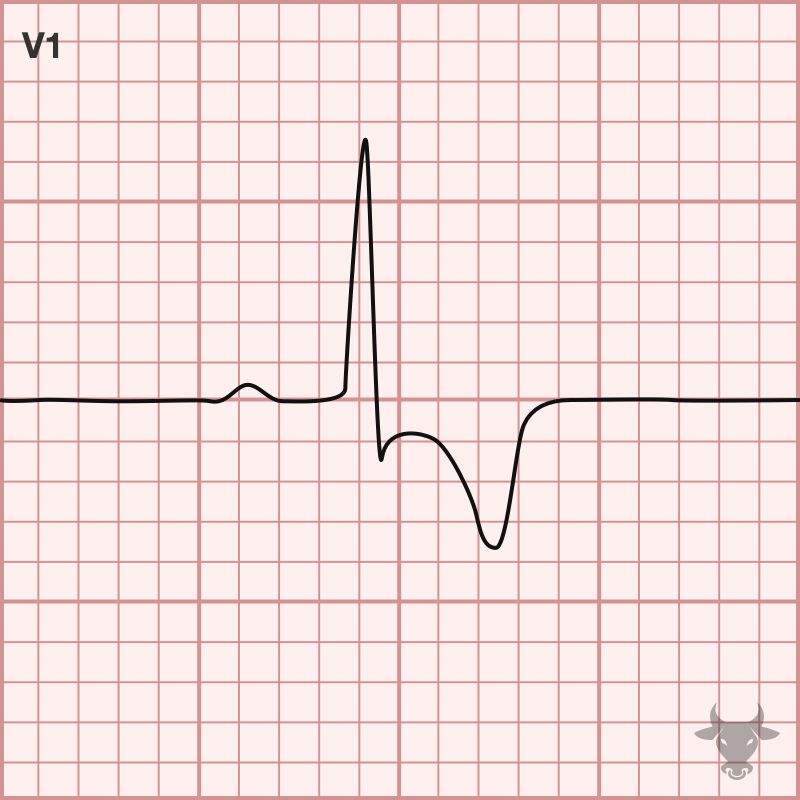
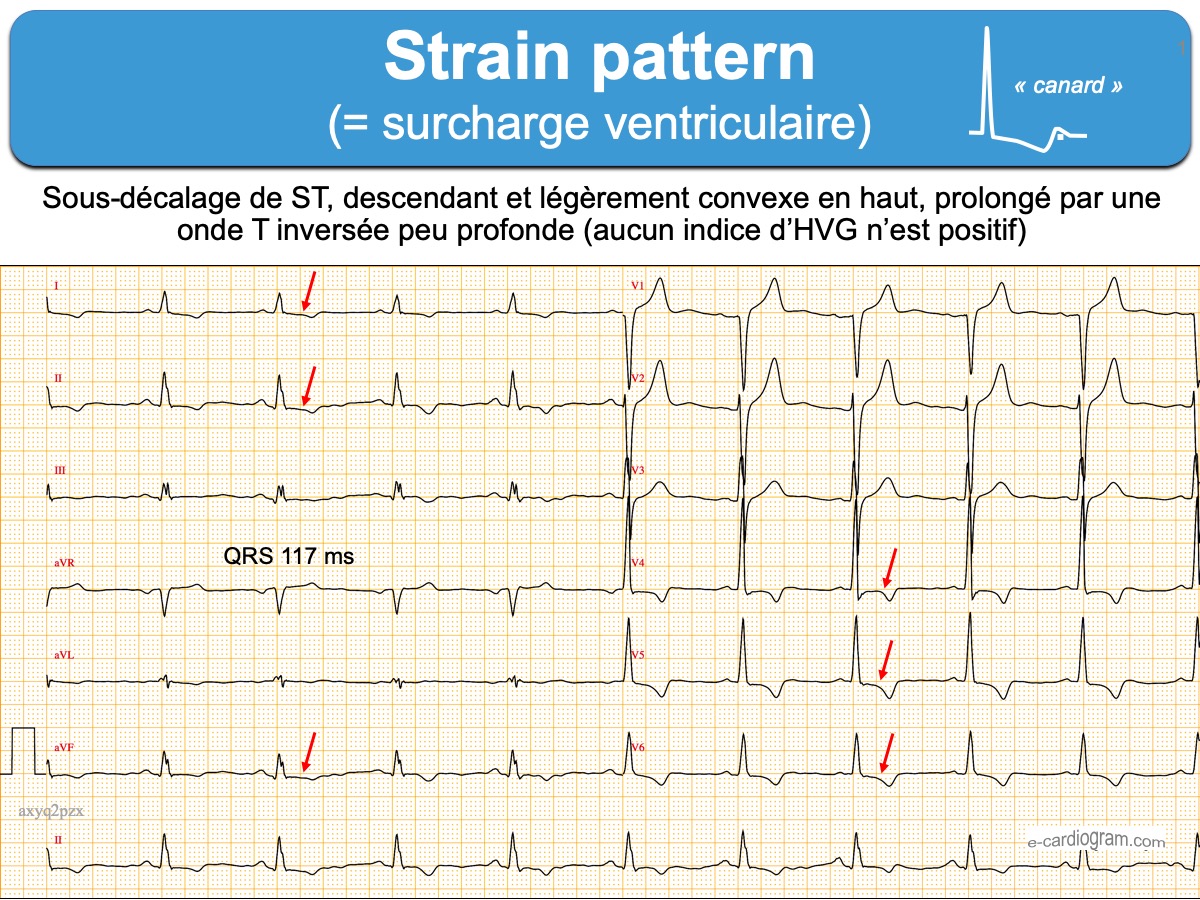

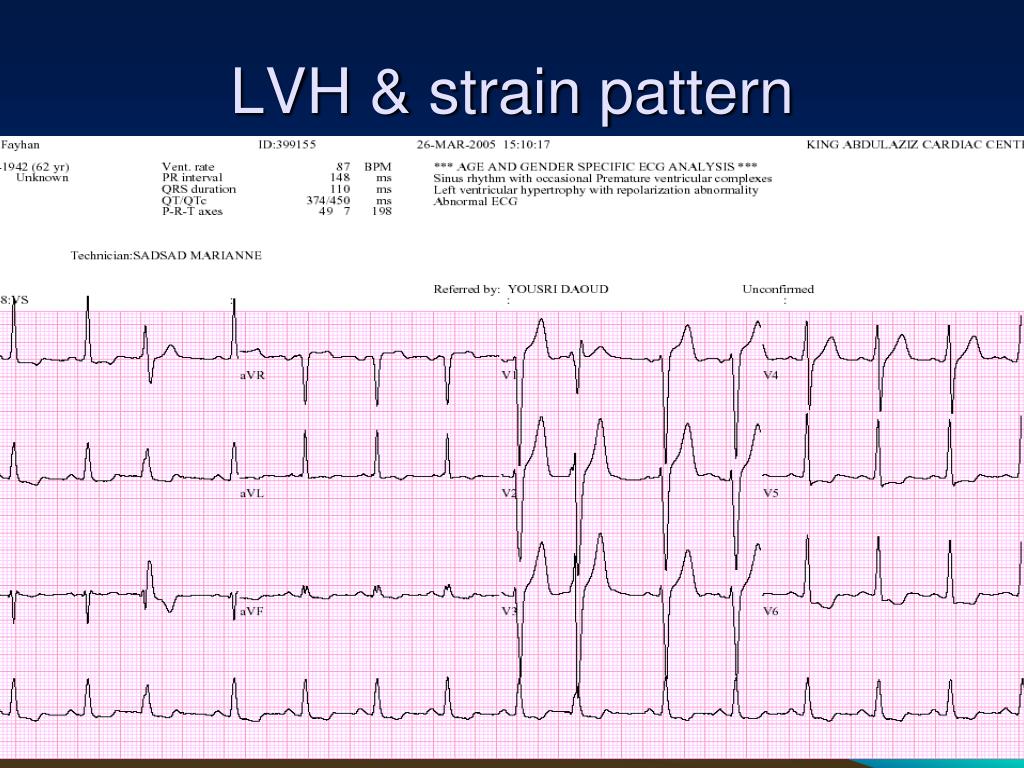
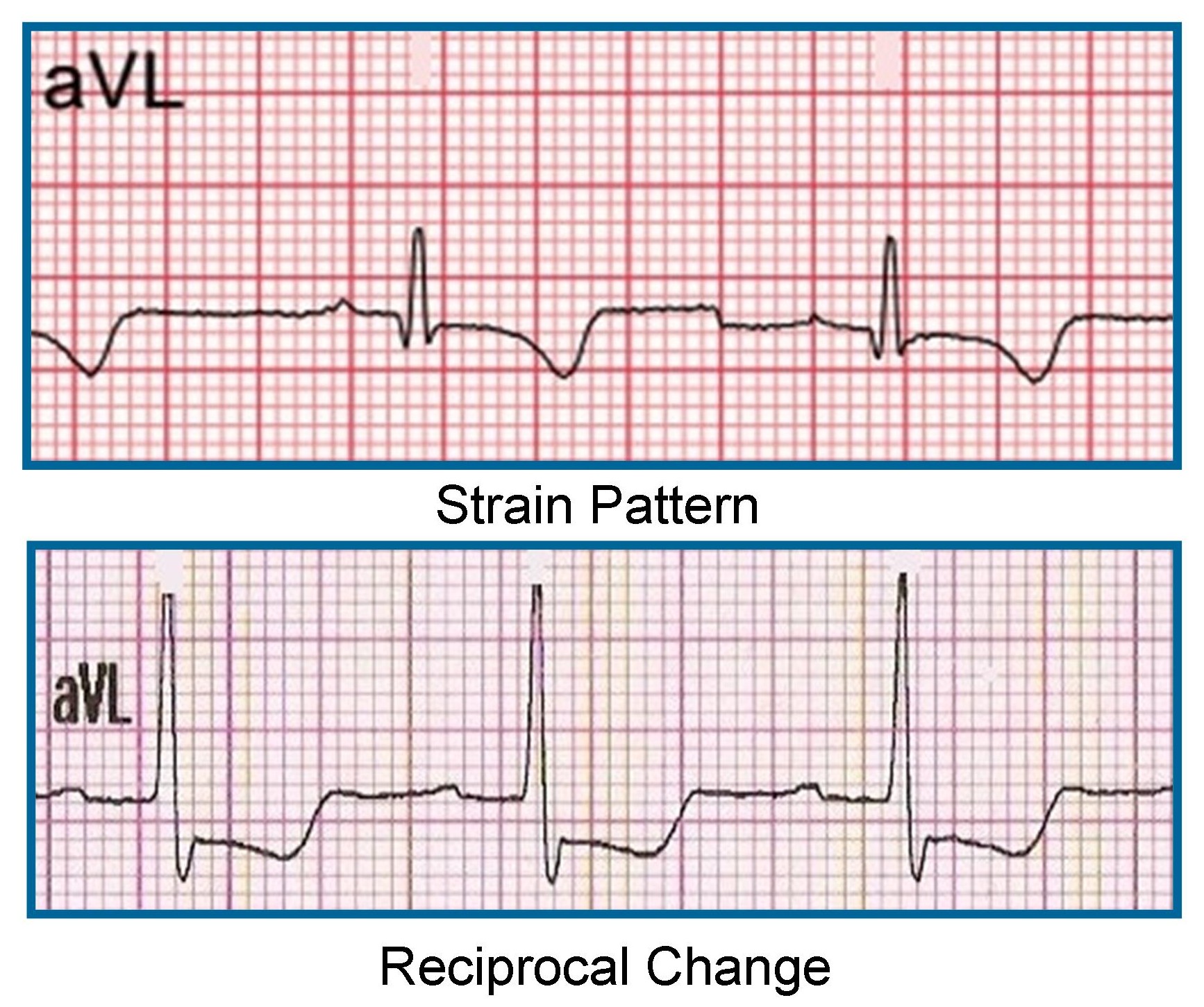
.jpg)

